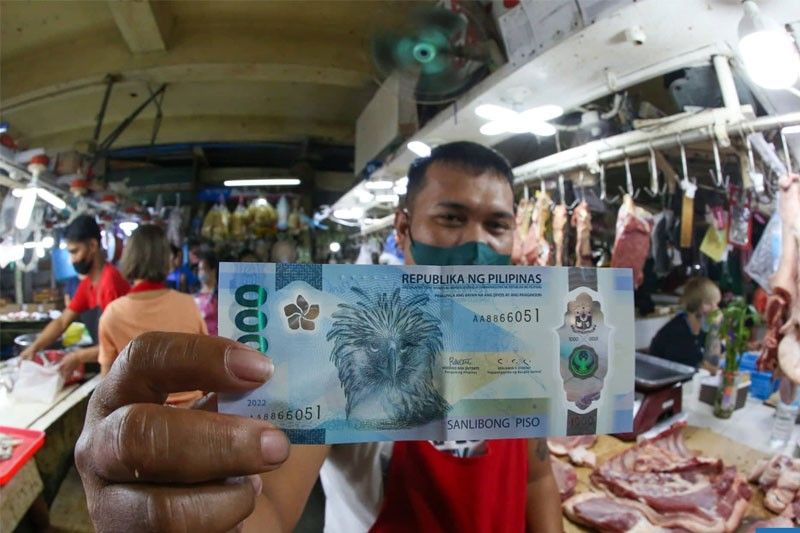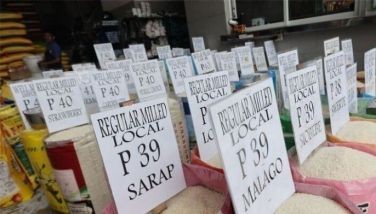BSP to retailers, banks: Accept folded P1,000 polymer bills

MANILA, Philippines — Folded P1,000 polymer banknotes can still be circulated and accepted for payments.
“Retailers and banks should accept them for day-to-day payment transactions,” the Bangko Sentral ng Pilipinas (BSP) said in a statement.
The BSP issued the advisory to address concerns raised on social media regarding non-acceptance by some establishments of folded P1,000 polymer banknotes.
Based on guidelines on the proper handling of polymer banknotes issued by the BSP, the P1,000 polymer banknotes should be kept in wallets, particularly typical bi-fold wallets, where they fit properly.
The BSP also urged the public to keep the banknotes, both paper and polymer, clean and use them as payment for goods and services.
It issued the guidelines to raise public awareness on the proper use of polymer and paper banknotes, safeguard their integrity and prolong their lifespan.
“If an individual is doubtful on the value and/or authenticity of a banknote, he or she is encouraged to go to any bank for assistance. The bank will refer the banknote to the BSP for examination,” the BSP said in the advisory.
The central bank is initially issuing 10 million pieces of redesigned P1,000 bills made of polymer as part of a limited circulation test for this year.
The test would help determine the effects of polymerization on hygiene and public health in the wake of the COVID pandemic, environmental sustainability as well as the lifespan, durability and counterfeiting rates.
The BSP aims to collect stakeholders’ feedback and observe changes in currency handling behavior.
Polymer banknotes are cleaner and less susceptible to viral and bacterial transmission due to their smooth and non-absorptive surfaces.
The resilience against extreme temperatures and resistance against water and dirt make polymer notes highly durable.
They have been found to last 2.5 to four times longer than paper money, more than offsetting the initial increase in production cost.
Studies showed polymer notes are more cost effective than paper notes, leading to lower note issue expenses.
Based on the experiences of other central banks, expenses on banknote issuance could be reduced by 40 percent to 60 percent.
In addition, polymer banknotes have smaller carbon footprint and lower water and energy usage.
Its recyclability enables polymer banknotes to have more than one life cycle.
The materials can be kept within the economy indefinitely and used productively, creating further value.
- Latest
- Trending




























